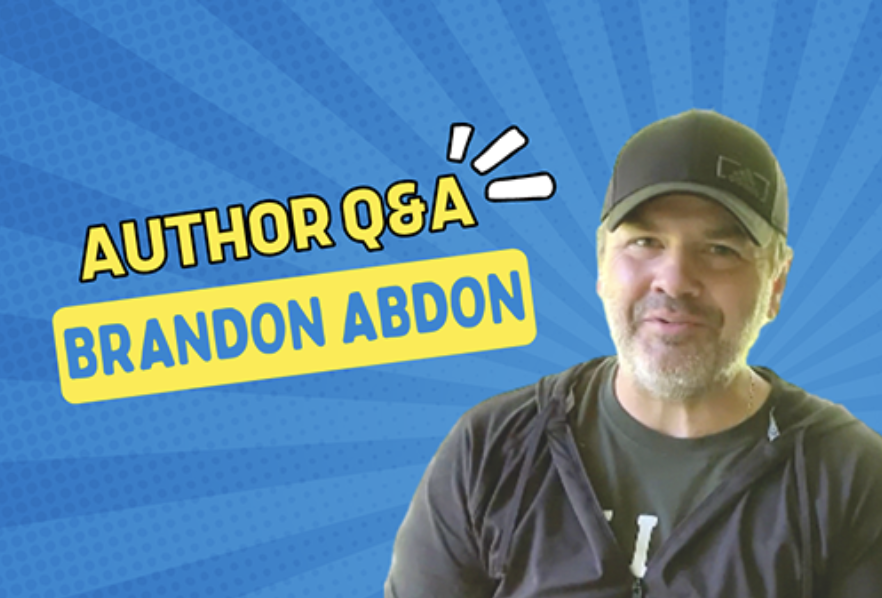Everything You Need to Know About the Digital Exam Changeover
Join Brandon Abdon as he hosts teacher, author, consultant, and digital exam coach Melissa Alter Smith to discuss preparing for—and training...
AP & Honors Mathematics
Explore Wiley titles to support both AP and Honors mathematics instruction.
Literacy Skills & Intensive Reading
Connections: Reading – Grades 6–12
Empower student success with a proven intensive reading program that develops strong reading skills in striving readers.
Drama, Speech & Debate
Basic Drama Projects 10th Edition
Build students’ confidence and competence with comprehensive, project-based theatre instruction.
Literature
Connections: Literature
Support learners as they study dynamic, relevant texts and bring the richness of diverse voices to students through literature.
Literature & Thought
Develop critical thinking, reading, and writing across literacy themes, genres, historical eras, and current events.
Language Arts
Vocabu-Lit® – Grades 6–12
Help students build word power using high-quality contemporary and classic literature, nonfiction, essays, and more.
Connections: Writing & Language
Help students develop grammar, usage, mechanics, vocabulary, spelling, and writing and editing skills.
Reading/English Language Arts
Measuring Up to the English Language Arts Standards
Incorporate standards-driven teaching strategies to complement your ELA curriculum.
English Language Learners
Measuring Up for English Language Learners
Incorporate research-based best practices for ELLs with an approach that includes a focus on language acquisition strategies.
Mathematics
Measuring Up to the Mathematics Standards
Incorporate standards-driven teaching strategies to complement your mathematics curriculum.
Foundations
Measuring Up Foundations
Help students master foundational math skills that are critical for students to find academic success.
Science
Measuring Up to the Next Generation Science Standards
Give students comprehensive NGSS coverage while targeting instruction and providing rigorous standards practice.
Assessment
Measuring Up Live
Deliver innovative assessment and practice technology designed to offer data-driven instructional support.
For a better website experience, please confirm you are in:
1 min read
 Dr. Brandon Abdon
Mar 30, 2022 10:14:15 AM
Dr. Brandon Abdon
Mar 30, 2022 10:14:15 AM

The sophistication point on the essay rubrics often meets with much weeping and gnashing of teeth. Students want to know how to write it. Teachers want to know how to teach it. Readers want to know how to reward it. Consultants and trainers want to know how to advise it.
There is no silver bullet for the sophistication point, but it certainly can be taught.
It begins with complexity—of a text or an argument or both—and extends to ideas beyond the text or argument itself to become universal. It requires consistency in the reasoning and the writing. It expects precision in the language and style. In other words, there are a lot of factors.
This session explores some of the common characteristics and then offers a place to start with students, strategies to begin attacking this idea from the beginning, and even a little history on how we got here and why it matters.
Watch now!
Dr. Brandon Abdon has 20 plus years in education including 12 years as a high school English teacher, eight as a professor of English and Education, and eight as a curriculum developer and instructional coach. He also has more than 10 years of experience as a consultant and formerly worked as the lead director for the international Advanced Placement® program at the College Board. A fellow of the National Writing Project, Brandon believes in the power of writing daily in the classroom. He also knows that all students have a path to literacy when engaged and challenged suitably. He is the senior author of two textbooks: AP® Language and Composition (2020) and AP® Literature and Composition (2021) coursebooks, both by AMSCO®. He is also a collaborator on a number of projects to support English teachers and their classrooms, including the Mosaic Slow-Conference project and The Garden of English. He holds advanced degrees in both English and Education—including a Doctorate in English —and certification as both a teacher and an administrator. During his full-time work in high school classrooms, he was recognized with the National Council of Teachers of English “High School Teacher of Excellence” award in 2010. He has taught courses at the University of Kentucky and Georgia State University, teaching courses including English Composition 1, Introduction to Literature, Literature for Teachers, Composition for Teachers, and others. He likes to read and play sports, but does both of them slowly and only one of them well. He has been married to his brilliant wife, Angela, since 2008 and has two sons, Hilton and Dorian.

Join Brandon Abdon as he hosts teacher, author, consultant, and digital exam coach Melissa Alter Smith to discuss preparing for—and training...

Congratulations—or maybe condolences? You just found out you are teaching an Advanced Placement® (AP) English class next year. Whether it’s AP...

Join authors Dr. Brandon Abdon and Becky McFarlan to learn about how to connect learnings from the AP Lang and AP Lit courses. {% video_player...

Join Brandon Abdon, Timm Freitas, and Beth Hall as they celebrate their new book–AMSCO's Writing for the AP Exam: English Language and Composition....

Most AP English teachers recognize that the multiple-choice questions assess skills and essential knowledge in composition and reading, but students...

With an emphasis on close reading, analysis, and full-length essays, losing track of sentences is easy. Join Dr. Brandon Abdon, author of our AP®...

Join Dr. Brandon Abdon for top review tips for the last month of preparation leading up to the AP English exams. {% video_player "embed_player"...

Every May, AP readers hear the same refrain: “The sophistication point is a unicorn.” But that’s not quite right. Unicorns don’t exist. The...

One of the most persistent challenges in AP® English classrooms isn’t getting students to write—it’s getting them to move beyond summary.

It’s a month before the AP exam and you’re freaking out- You're trying to think about what you need to review with your students, what you should ask...

You know him as an AP® English teacher, webinar presenter, and author of our AP® Literature and Composition and AP® Language and Composition...

The first days of any AP® English course are less about handing out a syllabus and more about laying a foundation: telling students what is expected...
